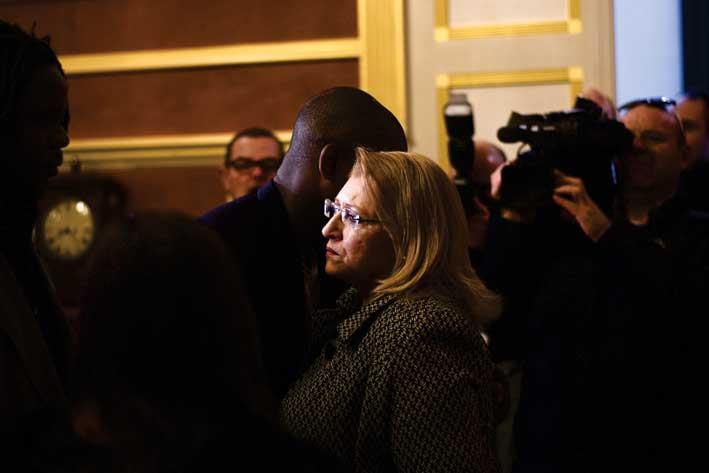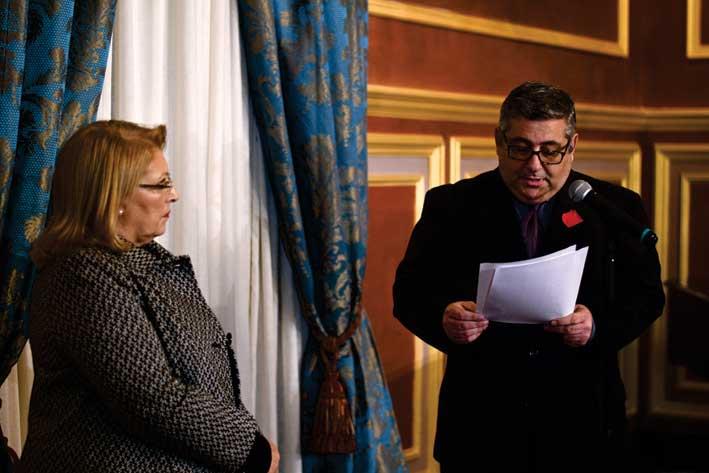Innocent Lokri, a Nigerian migrant who has been in Malta since 2009, told The Malta Independent that if he goes back to Nigeria, the least that would happen is that he would be shot and killed.
Speaking with the Malta Independent, he said that he had tried to expose what was going on between a particular militia group and the Nigerian government, and they tried to eliminate him. He said he ran for his life.
If he is sent back to Nigeria, “The least they can do to me is to shoot me and kill me. When someone shoots you, it’s a normal death, but they can burn you alive and that is probably the least they will do to me.”
He described his life in Nigeria as a sorrowful one.
While 25 December is celebrated in many countries around the world as Christmas day, it marks a sorrowful day of remembrance for Mr Lokri, who said that that on 25 December 2008 he lost his brother and sister. “When everyone is happy on that day, I always feel sad.”

“I managed to come to Malta in 2009. Escaping death, and integrated here, living in peace and harmony until this particular event.” He was referring to government’s decision to require all migrants with Temporary Humanitarian Protection- new, known as THPn protection, to present identification documents to government by 31 October 2017. The issue is, according to the Solidarity with Migrants group, that for an undocumented migrant to procure such documentation is almost an impossible feat. Once the 31 October deadline passes, they would lose their protection.
“What will become of us, our families and those children here in Malta,” Mr Lokri said.
He also argued that the authorities sent a letter to the children detailing the 31 October requirement to children as well. He said that he read in the news that the authorities admitted that sending the letter to children was a mistake. “They also say that if the parents are rejected, then the children will also be rejected automatically. So if the parents can’t have a job, then the children cannot eat. How can we survive without documentation, how can we work and feed the children.”
Mr Lokri works at a hotel in St Julian’s.

A country is considered safe based on whether it’s government is democratic – Dr Colin Calleja
Dr Colin Calleja, who forms part of the Solidarity with Migrants group, told this newsroom that a country is considered a safe country based on the type of government. Nigeria has a democratically elected government and is considered safe. “Yet there are many militias there, like Boko Haram. So it’s safe there in terms of government who would not be persecutory, but the militias would are the power, are the government in villages”.
“When it comes to most of Africa, including countries like Libya who some consider as now being safe, we must ask, are they really safe. Recently there was talk in the press of the importance of having agreements similar to that in Turkey with Libya, yet the Maltese Foreign Affairs Minister came out asking whether Libya is a safe country to return to or not. So saying that sending migrants back from where they came, we must ask, what is going to happen to them. Some African migrants narrate the stories of the persecution they faced, not in their home countries, but in Libya, and that is why they decided to make the dangerous Mediterranean crossing.”
Ali Konate, a Malian migrant who has lived in Malta since 2002 when he was 17, said that he left his country when he was very young. When in Mali, he was set to be part of an arranged marriage. “We were both young and we didn’t know each other. I did not have any feelings for her. It was something planned by tribe and by family. There was a possibility that I could lose my life, and that is why I left.”
If THPn is revoked, “the first thing that will happen to me is that I will lose my business, and then I would use my humanity as I would no longer be considered a person. This is Europe and without any identification documents you can’t go anywhere, my bank accounts will be locked, we would not be able to sell the vans we work with as you require identification to sell a car – my name is on the logbook.”
Asked whether he believes that he and other migrants with THPn status should remain with this current status, he said “I believe that some of us should have long term residency, and maybe, if we deserve it, citizenship at one point. Your home is where you live. We didn’t choose to be born in Africa. I was born black, born in Mali, and that wasn;t my choice. I didn’t tell god to make my father, my father. I believe here, Malta is my home, and it is a place I love to live in.”